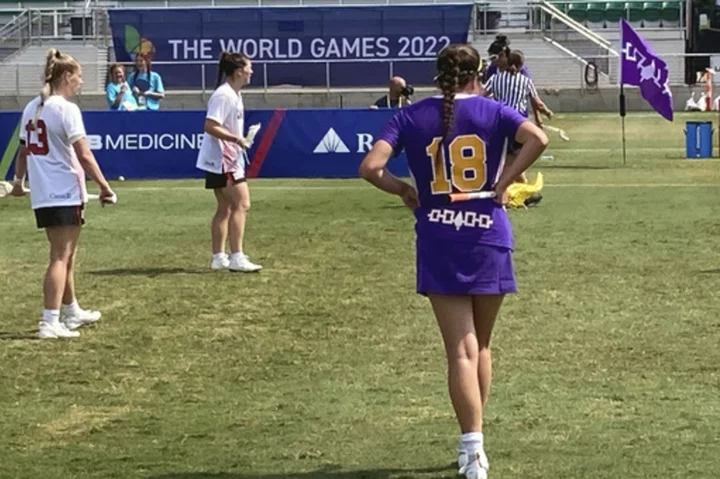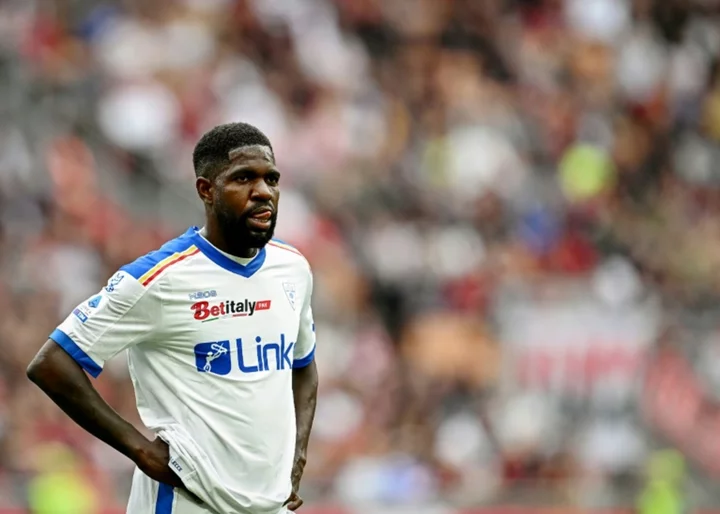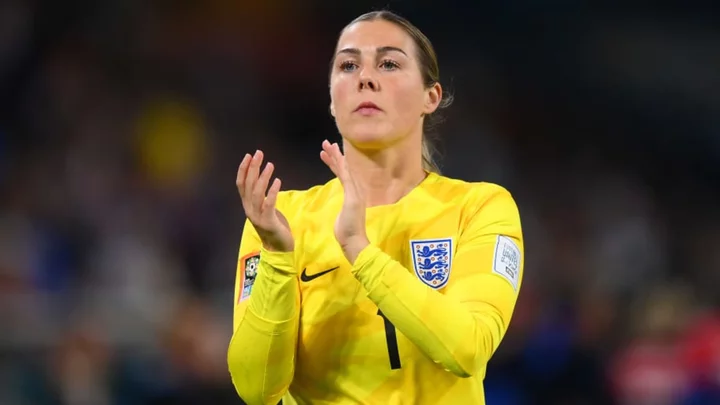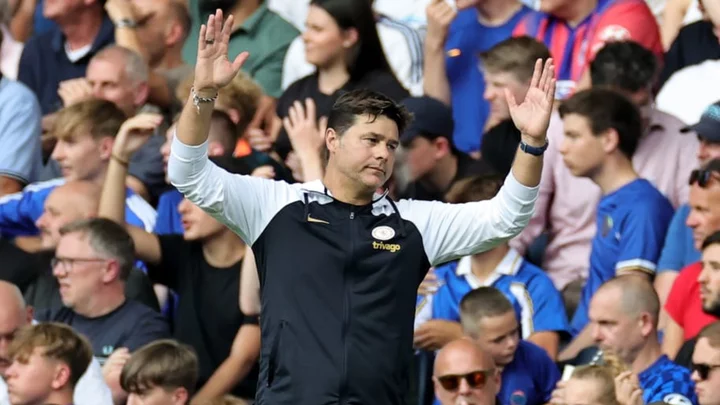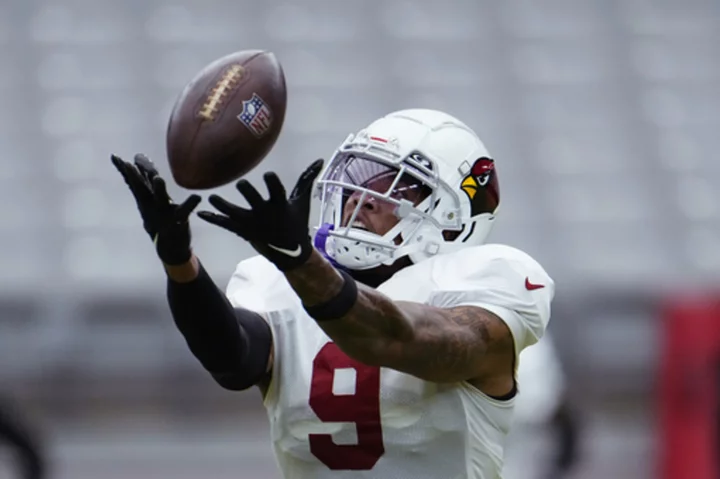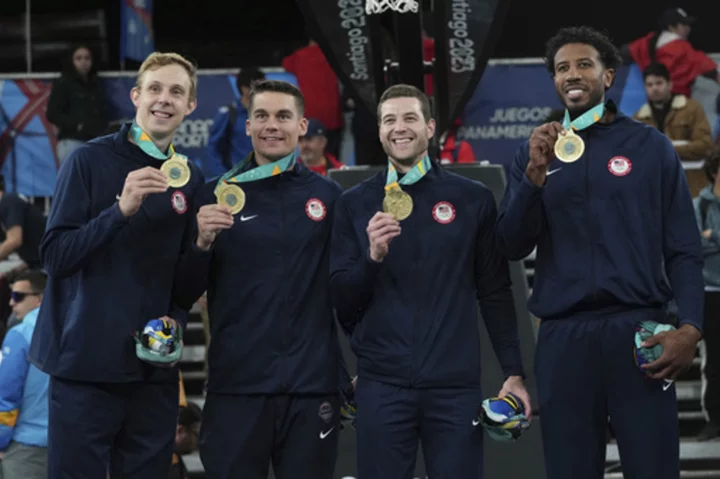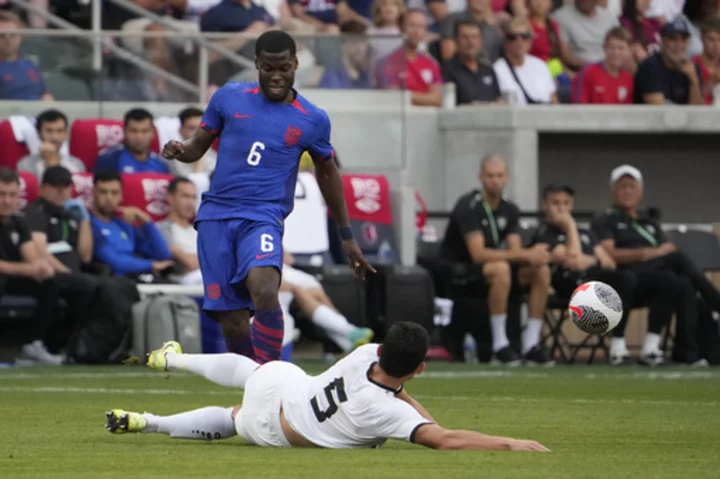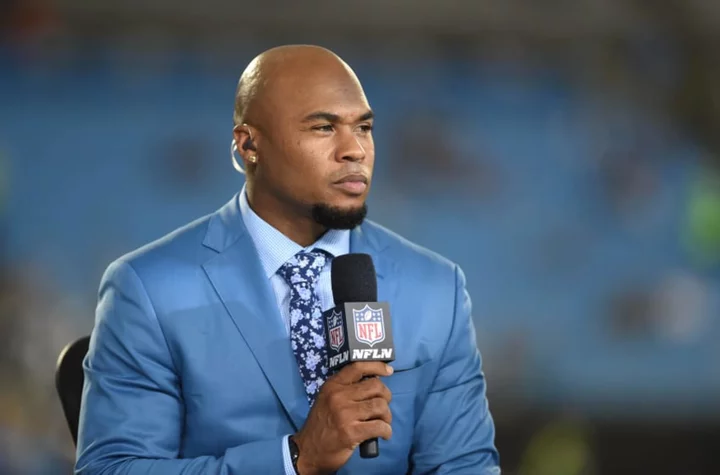They call it the “medicine game," which is a bit of a misnomer because lacrosse is more than just a game to the Haudenosaunee people.
It's the spirit of their ancestors. It's a ceremonial tradition that has been passed down through the generations. It's the salve that soothes the souls of Native Americans who have endured so much heartache and suffering.
“Our gift to the world,” says Rex Lyons, a former Haudenosaunee player and now the program's biggest cheerleader.
Simply put, they can't hold lacrosse at the Olympics — the biggest stage in all of sports — without allowing those who created the game and still treat it with a mystical reverence to have a team of their own.
Yet that's the position the International Olympic Committee is taking at the moment, actually having the gall to say Haudenosaunee athletes must compete for either the American or Canadian teams at the 2028 Los Angeles Summer Games.
In other words, assimilate.
An ugly word, indeed, given the centuries-long degradation of Native Americans and persistent attempts to stamp out their customs and way of life since the settlers arrived at these shores.
“Throughout the history of colonialism, it felt like the Haudenosaunee people and all indigenous people were just fighting every day to still be alive,” said Kason Tarbell, a member of the Haudenosaunee men's national lacrosse team. “Society keeps trying to put us back down and erase us from the history books. But with our flag, we're showing every other country that we're still here, we're still fighting.”
That purple flag, emblazoned with four connected squares and a white pine tree, is the revered symbol of Haudenosaunee, a confederation of the Mohawk, Oneida, Onondaga, Cayuga, Seneca and Tuscarora nations.
Their territory encompasses upstate New York and adjoining swaths of Canada, but all attempts to assert internationally recognized sovereignty have been swatted down.
Nevertheless, Haudenosaunee — also known as Iroquois, though many now take a dim view of that label — has long been viewed as an independent nation in the world of lacrosse.
The men have competed at the world championships since 1990, claiming the bronze medal in each of the last three editions, including this past summer. The Haudenosaunee also have competed at the last four women's world championships, finishing eighth at the most recent tournament in 2022.
Even more notable, the Haudenosaunee men and women were allowed to compete last year at the World Games in Birmingham, Alabama, an Olympic-style competition for sports that don't have a permanent place on the Olympic program.
“It’s only right for Haudenosaunee to be recognized as our own sovereign nation,” said Jalyn Jimerson, a member of the women’s team that competed in Birmingham. "I think we should be in the Olympics under our own sovereign flag. Not under the USA. Not under Canada. Considering we did create the game and shared it with everyone else, it’s only right.”
Apparently, that message hasn't gotten through to the IOC, at least not yet.
But Lyons is hopeful a compromise will be reached to allow Haudenosaunee its rightful spot in the Olympics.
“They're just keeping their cards close to their chest,” he told the AP in a telephone interview. “I don't think there's any firm position at this point in time.”
Lacrosse is among five sports that will be added for the Los Angeles Games, joining cricket, squash, baseball-softball and flag football.
But giving lacrosse sixes, a new, fast-paced version of the sport, the stamp of approval raised a sticky issue for the IOC, the U.S. and Canadian Olympic committees, as well as local organizers.
What to do about the Haudenosaunee teams that are accustomed to competing separately of the powerhouse U.S. and Canadian squads?
For now, the IOC is sticking to its stance that only recognized national committees (NOCs) can send athletes to the Olympics.
“This means it is up to the two NOCs concerned (USA and Canada) — in coordination with World Lacrosse and the National Federations concerned — to decide if they include athletes from Haudenosaunee in their respective teams depending on the passport they hold,” the IOC said in a statement to The Associated Press.
The IOC has its rules, of course, but let’s face it: The powerful organization can do pretty much whatever it wants. It already fudged on its participation requirements by allowing a team of refugee athletes to compete at the last two Summer Olympics.
Lyons noted that the modern Olympic ideal of having the top athletes in every sport would ring hollow if Haudenosaunee is excluded from Los Angeles.
“If you're going to provide the best field for the sport, you have to include Haudenosaunee," he said. "We just have to get an audience with (the IOC), have discussions and figure out what this may look like.”
Frankly, after talking constantly about inclusion and being a vehicle to promote world harmony, talk that often rings hollow, the IOC would look foolish to exclude Haudenosaunee from the 2028 Games.
"This is an opportunity for everybody to have a win here,” Lyons said. “It's really important that we start coming together collectively rather than polarize and separate. We are a family. We have to start behaving that way. A lot of the human condition can be messy, but there are always opportunities for change. I think this is a great one.”
Lyons stresses that Haudenosaunee isn't looking for some sort of payback for all the wrongs of the past. His eyes are firmly focused on a brighter future.
“There’s been some very traumatic history in our wake, things that are still coming to light to this day,” Lyons said. “We don’t want to minimize that, but we don’t want to live there either. We’re trying to move forward.”
Looking forward, it's should be a no-brainer that Haudenosaunee gets the green light to compete at Los Angeles, especially since 2028 could very well be a one-off for lacrosse given its limited international appeal.
Let's get to it, IOC.
Come up with a plan that allows the Haudenosaunee to proudly wear their colors, proudly fly their flag, proudly play their game in Los Angeles.
They've certainly earned a team of their own.
___
Paul Newberry is the national sports columnist for The Associated Press. Write to him at pnewberry@ap.org

